#yue opera
Explore tagged Tumblr posts
Text
Main types of Chinese Opera pt. 1


There are many different types of chinese opera, so here are some of the main ones!
Peking Opera 京剧 (Jīngjù)
This is probably one of the most well-known operas, originating from Beijing during the Qing dynasty. There are 4 main roles:
1.生 (shēng), which is usually an older dignified male character such as a scholar, which can be divided into older, younger and martial 生 aka 武生 (wǔshēng)
2. 旦 (dàn), a female role which was previously played by men as women were not allowed to perform during the Qing dynasty, but nowadays both men and women can play this role. This role has several subtypes:
闺门旦 (guīméndàn), a young unmarried high-status virtuous woman, whose main focus is singing.
正旦 (Zhèngdàn)/青衣 (Qīngyī), an elegant, middle-aged, usually married woman who mainly sings.
花旦 (Huādàn), a young woman who unlike the Guīméndàn focuses on speech and movement.
武旦 (Wǔdàn), this is a martial arts role with quite a lot of stunts and fighting with rare singing moments
刀马旦 (Dāomǎdàn), a young brave warrior, who usually focuses on acrobatics, singing and dancing unlike the Wǔdàn.
老旦 (Lǎodàn), is an older female role, usually with a lower singing voice.
彩旦 (Cǎi dàn), is more of a clown role, which is apparently more commonly performed by men
4. 净 (Jìng), a "rough man" role, usually has a vibrant and strong character, which has heavy face painting.
5. 丑 (chǒu), the clown role, which is one of the most physically demanding roles due to the acting and acrobatics combo, despite being considered as a minor role.
There are over 1400 stories used in Peking Opera, with 2 traditional types, civil and martial. Civil focuses on the relationship between the characters and is usually about normal daily occurrences, whereas martial is more about action and fighting. Another more modern type of differentiation divides the plays into traditional (pre-1949ish), plays created after 1949, and contemporary plays.


Kunqu Opera 昆曲 (kūnqǔ)
This is one of the oldest types of Chinese opera, originating from Kunshan, combining signing, dancing and martial arts. It features similar characters like the Peking Opera with another character 末 (Mò), who is an old man with a long beard.
However, there are some differences, as Kunqu uses softer, melodic music and different instruments such as the flute as the main accompanying instrument rather than Peking Opera's stringed instruments. The types of stories are also different, as Kunqu's focus more on the romantic and poetic aspect, exploring various classical stories. Peking Opera's stories tend to be a bit more varied as previously mentioned.
Traditionally, Kunqu was mostly for the upper-class as the stories performed were classical Chinese literature, and at the time not everyone had the opportunity to learn. This may be why Kunqu typically uses classic chinese, whereas Peking uses a combination of both classic and vernacular, making it more available for everyone.


Yue Opera 越剧 (yuèjù)
This opera is also known as Shaoxing opera, originating from Shaoxing, Zhejiang in early 1900s. Originally the performances featured only male actors but nowadays all-female performance troupes are becoming the standard. It's interestingly the 2nd most loved opera type, just after Peking Opera as it's slow and romantic form is perfect for love stories such as The Butterfly Lovers.
Yue Opera also features the usual set of character types e.g. 生,旦 etc. except they are usually played by women.
In terms of appearance, Yue Opera tends to go for a more subtle makeup look (as subtle as stage makeup can be) and simpler but nonetheless gorgeous costumes, in contrast to Peking Opera's dramatic and bursting colors.
Yue Opera usually relies on string instruments, with a smaller musical ensemble and musical accompaniment so that the performers singing is more clear unlike Peking Opera's stronger background music.


#chinese opera#theatre#越剧#昆曲#京剧#peking opera#peking#china#chinese culture#chinese#китай#中国文化#中国#new interest unlocked#slavic roots western mind#opera#kunqu#yueju#yue opera#music
353 notes
·
View notes
Note
Hello! Do you happen to have a post on costumes for traditional Chinese operas like Peking operas, Kunqu or Yueju? I imagine they would be stage wears that were different than daily wears even back in the day? Thanks.
Hi! Thanks for the question, and sorry for taking ages to reply! (kunqu image via)

Yes, Chinese opera costumes (戏服/xifu), as stagewear, were/are different than daily wear.
There are posts on costumes for traditional Chinese operas here:
Do Chinese opera costumes count as hanfu?
What type of clothing do Beijing opera actors wear?
Are Chinese opera costumes based on hanfu to some extent?
I also have Chinese opera and opera costume tags with more information, as well as tags for specific types of Chinese opera including beijing opera (jingju), kunqu, and yueju.
Hope this helps!
#chinese opera#opera costume#xifu#beijing opera#jingju#kunqu#yueju#yue opera#ask#reply#history#reference#chinese fashion#chinese clothing#chinese culture#china#s
77 notes
·
View notes
Text
youtube
this performance has been blowing up on xiaohongshu, and honestly I need to share it here. when I say the first time I watched this I SCREAMED- like sure it's inspired by yue opera, sure chen lijun is playing a man and it's desperately heterocoded as hell- but two women? singing and performing together in a somewhat romantic context? YES PLEASE.
#ju jingyi#yue opera#traditional Chinese opera#chen lijun#lgbtq#gl#Youtube#c-ent#Chinese entertainment#xiaohongshu
113 notes
·
View notes
Text
Li Yunxiao (李云霄) and Chen Lijun (陈丽君) in New Dragon Gate Inn (新龙门客栈), an Yue Opera (yueju 越剧).


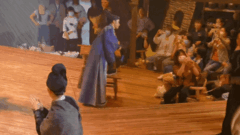

Yue Opera is an all-female theatre, Chen Lijun is a xiaosheng (小生) - young male role and Li Yunxiao is a huadan (花旦) - female role.
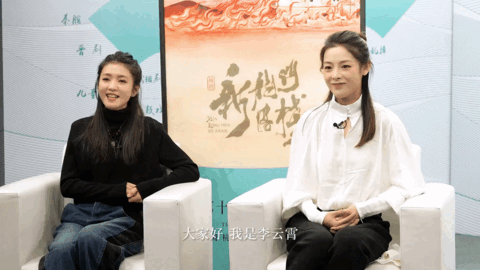

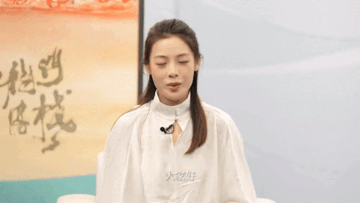
#chen lijun#li yunxiao#yueju#yue opera#陈丽君#李云霄#all female theater#the lift omg#gender#theatre#musical#all female cast
11 notes
·
View notes
Text
陈丽君, my latest obsession
handsome yueju越剧(yue opera) actress checks the audiences‘ tickets by herself before the performance
4K notes
·
View notes
Text
MLQC CN Collaboration with Hopewater & Shanghai Yue Opera
Just pic and song. 💙❤️🧡💜🤎💐
youtube






#恋与制作人#mr love queen's choice#mlqc gavin#mlqc victor#mlqc kiro#mlqc lucien#mlqc shaw#love and producer#mlqc cn#hopewater#Shanghai Yue Opera#Youtube
13 notes
·
View notes
Text
((probably gonna be a little bit spotty in the activity department. I've got too many assignments to work on rn))
0 notes
Text






Chen Lijun in 乘風2024 Ep6
#Things made for an audience of me#listen she's so fucking cute she makes me feel crazy when it was her turn to wink at the camera and instead did a lil blink it got me so ba#It was like seeing root being unable to wink in poi like oh you're a fucking dork i love you#乘風2024#陳麗君#chen lijun#Don't ask my why I formatted the gifset like a pyramid i don't know okay it's nearly 6am#B.Gifs#can’t believe i fucking fell for the yue opera performer#mel and I are gonna finish watching this show and then like what am i supposed to do after that???#where the fuck would i even be able to see her yue opera#rtw.gif
7 notes
·
View notes
Text

Yue Opera actors, China, by The China Journey
185 notes
·
View notes
Text
25 Facts About Xie Yuchen
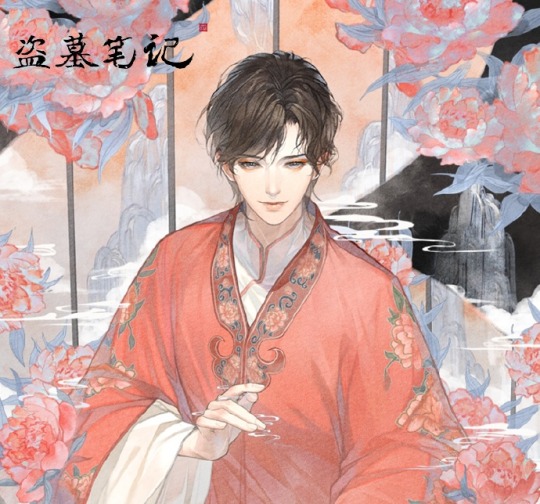
1. Xie Yuchen was born on October 3, 1978.
2. Xie Yuchen's stage name, Jie Yuhua, comes from the poem 《蝶恋花(用宜笑之语作)》 by Zhao Shixia.
3. Xie Yuchen and Wu Xie were playmates when Xie Yuchen was five or six years old.
4. Xie Yuchen and Wu Xie are distant cousins.
5. As a child, Xie Yuchen would play Hua Dan and Qingyi (types of female roles) in Chinese opera. As a result, many people, including Wu Xie, thought he was a girl.
6. After Xie Yuchen's uncle, Xie Lianhuan, died, his father died soon after, and then several more of his uncles died.
7. Xie Yuchen had to take over the family business at 8 years old.
8. Xie Yuchen described the experiences he had growing up as "very, very uncomfortable."
9. He lived in a military compound.
10. When a friend of his caused trouble, he bought more than a hundred sheep to make up for it.
11. The first time Xie Yuchen appears he is described by Wu Xie as being dressed in a black suit with a pink shirt underneath and no tie.
12. He originally wore the color pink to offset his murderous aura.
13. When Xie Yuchen and Wu Xie met again as adults, they both smiled "pervertedly" at each other.
14. Xie Yuchen became a guarantor for Wu Xie's debt after Wu Xie's now-legendary disastrous biddings at the Xin Yue Restaurant.
15. In the online version of Sand Sea 2, Xie Yuchen throws Su Wan, Yang Hao, Li Cu, and Liang Wan out the window of a moving train.
16. In The Lost Tombs and Ultimate Note, Xie Yuchen is included much more than in the novels the shows adapted. However, in Reunion and Tomb of the Sea, his role is significantly reduced.
17. He sings every year during the Qingming Festival for Er Yuehong.
18. Wu Xie thinks he is "an extremely difficult person to get along with."
19. Xie Yuchen likes salty foods.
20. He was the biggest contributor in preventing Chinese national treasures from being exported.
21. Xie Yuchen smokes cigarettes but isn't addicted.
22. He has a habit of collecting old buildings.
23. In his free time, he practices Chinese opera, paints, and arranges flowers.
24. Xie Yuchen has used a butterfly knife and an antique dagger as weapons.
25. A the age of seventeen, he had already been surrounded by death and had even heard the words "it’s going to rain blood tonight" by his own mother.
References
English novel references refer to Merebear's translation, Chinese novel references refer to the original Chinese version.
Photo: From NP Entertainment's Merch Weibo
Author Celebrated His Birthday on October 3; Volume 7, Chapter 56; 盗墓笔记7, 第五十一章 (XYC says that he's 26yo, V7 takes place in 2004).
The Mystic Nine Memories Extra; 九门回忆 (Note: it should be Jie Yuhua not Xie Yuhua in merebear's translation)
Volume 7, Chapter 31; 盗墓笔记7,第二十六章
The Mystic Nine (4) Xie-Wu Matchmaking Extra; 吴邪私家笔记,第三卷,九五做媒; 老九门短篇集 肆——九五做媒
Volume 7, Chapter 56; 盗墓笔记7, 第五十一章
Volume 7, Chapter 56; 盗墓笔记7, 第五十一章
Volume 7, Chapter 56; 盗墓笔记7, 第五十一章
Volume 7, Chapter 56; 盗墓笔记7, 第五十一章
Sand Sea, Chapter 112; 沙海3, 第一章
Volume 7, Chapter 35; 盗墓笔记7, 第三十章
Volume 7, Chapter 5; 盗墓笔记6:邛笼石影, 第五章
A Day in the Life of Xie Yuchen Extra; 解语花的一天
Volume 7, Chapter 6; 盗墓笔记6:邛笼石影,第六章
Some of Wu Xie's Thoughts Extra; 吴邪的小心情
Sand Sea, Chapter 73; 沙海2, 第三十四章 (Note: this part was removed in the print version)
Watch the shows; read the books
Xiao Hua’s Annual Party Extra; 小花的年会
Seven Fingers Extra, Chapter 13; 七指,第十三章
Fishing King Extra, Chapter 7; 钓王, 第七章
Sand Sea (Online), Chapter 89; 沙海2 (Online),第五十章 (Note: this part was removed in the print version)
A Day in the Life of Xie Yuchen Extra; 解语花的一天
A Thousand Faces, Chapters 1, 17; 千面,第一,十七章 (Note: I don't have the published version)
Sand Sea (Online), Chapter 88; 沙海2 (Online),第四十九章; 沙海2 (Print), 第五十一章
Volume 7, Chapter 31; 盗墓笔记7 第二十五章; Sand Sea (Online), Chapter 75; 沙海2 (Online), 第三十六章; 沙海2 (Print), 第五十章
Volume 8, Chapter 10; 盗墓笔记8 第十章
102 notes
·
View notes
Text
Xiao Shunyao 肖顺尧's performance of his original work, 《山 (Mountain)》
Look, I'm not kidding when I say this song changed my entire brain chemistry. It's such a perfect fusion of old and new, both in terms of musical style and lyrics.
So the lyrics first. Co-written by Yang Haolong and Xiao Shunyao, it also incorporates two poems: 《满江红·怒发冲冠》 (often attributed to legendary Song Dynasty general Yue Fei, although the authorship has been contested) and 《七律·长征》 ...which was written by Mao Zedong 💀 so I'm not really going to talk about that bit lol other than that it's an interesting juxtaposition of poems since the Mao Zedong poem is about the Long March (military retreat by the CCP).
But since 《满江红》 is in 词 cí form, it's meant to be sung. Instead, he does the first verse of the poem as a lyrical recitation (0:23 to 0:37) and the second verse (1:55 to 2:25) in the 高拨子 gāo bō zǐ singing style of Beijing Opera, which is usually used by warrior characters. Honestly my favourite part of the whole song because the resonance and clarity of his voice is just *chef's kiss*.
And the combination of Beijing Opera, rap, lyrical recitation, and that rockstar growl?! Insane, what a vision. I also love that he used the 韵白 yùn bái style of narrative speech for the beginning because it reminds me of 说书人 or storytellers you see in c-dramas (used for the backstory exposition in the beginning of both The Untamed and Mysterious Lotus Casebook).
#cw flashing lights#xiao shunyao#肖顺尧#mysterious lotus casebook cast#LHL cast#chinese culture#sorry just me rambling about music analysis and poetry
136 notes
·
View notes
Text
I believe this is what they call "slightly foxed". Still, I'm really glad to have found one of Er-ye's old posters. They're collector's items!

[ID Old-fashioned poster in coloured line art advertising Er Yuehong in the opera "Farewell, My Concubine". Dominating the upper right quadrant is Er Yuehong's face in opera paint, wig, flowers, and beaded 'royal' hat. Below are two still figures, of the Emperor with arm raised in passion, staring at his cloaked consort. Title reads, ER YUE HONG, Farewell, My Concubine, Meihua Tea House, 2 February 7:30 pm, One Night Only!!' End ID]
Image Sources:
Mystic Nine screencaps "Tear, Rag, Paper" by BRRT (Pixabay) Pixabay stock image (paper)
Construction Notes:
Sometimes the best screencap for the face comes a little cropped in the frame, what with all that pesky 'cinematography' and 'movement' and boring things like that.
This is what I started with for the big face

[ID Screencap of Er Yuehong in opera gear, looking upwards winsomely. Subtitle reads, 'Sing, you!' End ID]
And I edited out the subtitle then reconstructed the missing parts of the hat by clipping and pasting the tassels at the back. And I think I used part of the cloak to do the top? (It's all starting to blur.)
The bottom figures were much easier.

[ID Screencap of two opera performers, in front of a lush and vivid stage. End ID]
I clipped them out separately to give me some flexibility, and a portion of that stage behind Er-yue, expanded and played with, makes up the shifting colours in the poster. Not sure if I entirely like the shadows I gave the lower figures. But eh. I still have my working files. Might have another play in a couple of days.
22 notes
·
View notes
Text

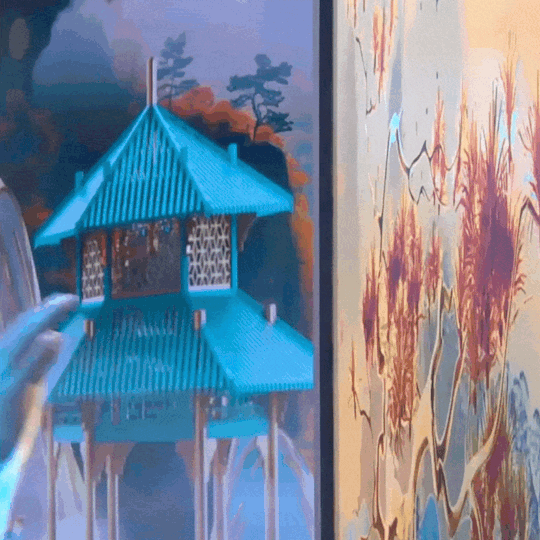

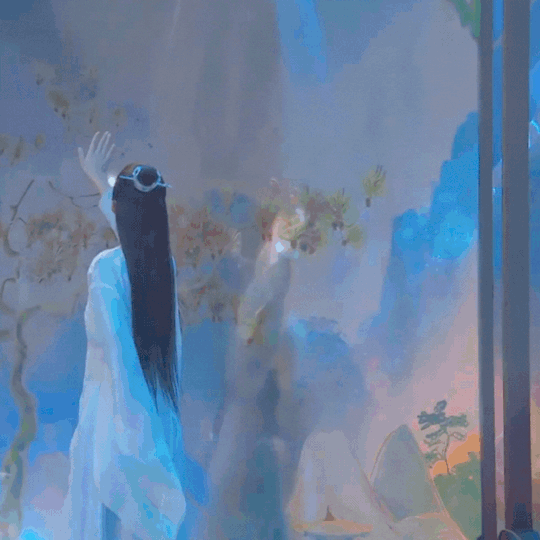
chen lijun + ju jingyi's performance of 游山恋
38 notes
·
View notes
Text
youtube
I don't think anyone's tled the lyric's to this performance yet and it's a shame: between the stage design, her singing, and her lyrics, it's all incredibly beautiful.
It's adapted from a longer version of lyrics written by Duan Xinghua, where it's shortened and changed so that the song is in the perspective of one character, the narrator.
The best translation I can muster for this performance is "Heaven's Will", and it alternates between the perspectives of Mulan and Sun Wukong, and, to a certain extent, herself, in a short narrative of fighting against fate. That sort of romance for freedom finds itself deeply lodged into Chinese mythos, but one that's hard to translate. I'm by no means an expert, but I've done my best below.
Chen Lijun is a Yue opera performer at the Baihua Yue Opera Troupe, and went viral last year with her performance as Jia Ting (in dark blue) in their New Dragon Gate Inn last year, as well as her ship with Li Yunxia (in red). You can watch it with subs (much better than what I've cobbled together below) here.
[general] heaven's will precedes man's fate
[mulan] worried brows peering to the bitter cold outside the window a brush wanting to paint another layer of red over the lips a daughter's mirror reflection ponders for a few moments I will myself to stand on the battlefield in my father's stead
[sun wukong] between heaven and earth I was born smashing past stones and turning over clouds summersaulting straight to the heavens piercing the heavens and shattering the realms
[mulan] how can a woman earn meritorious service? [sun wukong] how can a demon transform into a god? [general] a general's cry shakes mountains and rivers my fate is for me not for the heavens to determine not for the heavens to determine
61 notes
·
View notes
Text


Baihe novels I read in 2023, in order of when I read them:
Miss Forensics by Jiu Nuan Chun Shen. Contemporary thriller featuring a push-pull romance between a forensic pathologist and a police detective. Big action scenes, big emotional set-pieces, big emotions.
Distance by Mi Nao Nao. Contemporary romance billed as 'woman who has broken a thousand hearts vs woman who has never lost her heart'. I found it underwritten and lacking in structure, but lots of people seem to like it.
The Collapsing Palace by Ming Ye. Historical palace harem novel. A wilful noblewoman marries her cousin, the crown prince, so she can get close to his mother/her aunt the empress, whom she's been crushing on since forever. And she's not even the most toxic / messed up main character in this novel.
Life is Like a Dream by Qing Xiang. A short novel set in the Yue opera scene during the Republican Era. Small-scale, elegantly understated, makes highly effective of use of the author's detailed knowledge of opera and the opera scene.
Suffocation by Hua Qiong Ran. One of those 'toxic lesbians' contemporary thrillers, featuring the protagonist being repeatedly stalked and imprisoned by her own wife. Amped up the depravity too quickly to be wholly effective.
Zebra Crossing by Yi Bai Shou. Early baihe novel featuring a romance between a CEO and police detective, a mixture of thriller and romance. Strong beginning with appealing characters, somewhat let down by meandering middle and end and odd approach to extras.
She Belongs to Me by Da Ying. An uncomplicated contemporary romance between two femme professional women who are excellent communicators. Does make effective use of several k-drama style romantic set-pieces.
Bo Zhou by Ruo Hua Ci Shu. Time loop contemporary romance in which the protagonist tries to safe her girlfriend's life again and again. Overall competently plotted, well-paced and genuinely suspenseful.
The Tribulation of the Peach Runaway Blossom by Ning Yuan. A solid xianxia/xuanhuan novel with a big cast of complex female characters, competent world-building and assured prose. Somewhat falls down on the main romance (though the secondary romances make up for that a little), which was at once the lynchpin of the plot and not particularly present on the page.
The Abandoned by Mu Feng Qing Nian. Three words: sapphic xianxia shizunfuckery. Horny unhinged lesbians, plot twists on top of plot twists, and much violence.
Her Mountain, Her Sea by Fu Hua. A contemporary high school romance. Very solid, competent slice-of-life for the most part. The leads are well-characterised and their growing relationship is deftly handled, especially in the early stages.
The Creator's Grace by Ning Yuan. A near future sci-fi thriller. 12/10, no notes (though the sci-fi element is subordinate to the romance and thriller elements).
Minister Xie by Ruo Hua Ci Shu. This historical novel is The Goblin Emperor meets Sha Po Lang. Teenage emperor Liu Zao does her best to turn her prime minister Xie Yi (who is 14 years older) into her wife.
Snow on Her Pillow by Liu Yuan Chang Ning. Historical fiction featuring a romance between Princess Jieyou and her devoted attendant Feng Liao (described as the first official female diplomat in Chinese history). Competently and compellingly written; manages the Feat of treating Central Asian characters (of which there are many) as regular, undemonised people.
Spring on the River by Da Ying. This xuanhuan novel features supernatural women behaving very very badly, weird structure and pacing, and a rather hapless main character who frequently reminded me of a protagonist in a shoujo reverse harem novel.
Listen, God by Xian Yu Bu Chi Cai. A contemporary time loop thriller featuring a romance between a scriptwriter and an up-and-coming actress. Mostly carefully and cleverly plotted (though starts to unravel in the last 20%), though the relationship development between the leads left me cold.
A Taste of You by Si Bai Ba Shi Si. A contemporary romance between a talented chef and a CEO. A grounded, realist novel told through a charmingly wry first-person POV (bar a sharp swerve into melodrama in the last 10%), deeply embedded in the local lesbian scene.
Snow in the Spring Courtyard by Liu Yuan Chang Ning. This wuxia novel had good relationship development, a compelling love interest, and excellent pacing, and is likely to appeal to readers for those reasons. For me personally, it was let down by an extraordinarily bleak view of the jianghu which I don't think the author was fully aware of.
I Think About You Day and Night by Yu Shuang. In this contemporary romance, a CEO rescues a penniless girl from an abusive household, and k-drama-style shenanigans ensue. There's terminal illness, birth secrets, an incest scare (dw they're not actually related), and corporate machinations. The author's commitment to these tropes and their emotional stakes makes this an enjoyably dramatic read.
Cover Her Face by Qing Tang Shuan Xiang Cai. A mostly breezy, mostly fluffy, and unexpectedly sexy historical romance plus a dash of wuxia, with likable main characters.
Waiting for You by Min Ran. A contemporary showbiz romance, basically an exes-to-reunited-lovers story courtesy of a handy rebirth and time rewind. Another one for the 'attractive femme couple resolves their relationship problems through Better Communication' folder.
Climbing High by Po Po Po. In this historical court intrigue novel, aspiring scholar Fang Jian sells herself into indentured servitude to court official Gao Yunqu in exchange for the latter's promise to help her free her parents from unjust imprisonment. Published on PO18, so allowed to be sexually explicit in ways JJWXC and Changpei novels can't be, and the author makes full use of this (though I found the sex scenes between the tertiary couples stronger than those between the main couple, for the most part). Very strong political writing, a great cast of complex female characters.
83 notes
·
View notes
Note
Just asking out of curiosity, but where does the idea that swk is trans come from?
Macaques are matriarchal, and 王 (typically translated as the "king" in Monkey King) was historically a gender neutral title. This is widely known enough that some scholarly readings of JTTW interpret the other macaque in his sworn brotherhood to be a female monkey king. (On a similar but less impactful note, though often translated as "Handsome Monkey King," Sun Wukong's title of 美猴王 more accurately translates to "Beautiful Monkey King," with 美/beautiful having feminine connotations.)
It is widely known that Sun Wukong was appointed the position of 弼马温 (translated directly as “to soothe the horses”) as a pun on the identically pronounced 避马瘟 ( “to ward off sickness for horses”). This title references a traditional Chinese belief (often cited to 马经 by 赵南星 of the Ming dynasty) that female monkeys and their menstruation would ward off plague for horses if kept in the same stable
The disciples in Journey to the West hold elemental names in addition to their given and Buddhist names. Zhu Bajie and Sha Wujing both have feminine elemental names (木母 "Wood Mother" and 黄婆 "Yellow Matron" respectively), but in contrast, Sun Wukong holds a masculine elemental name, 金公 Metal/Gold Male
Sun Wukong is a 妖 yao, and yao in general have a history of being associated with the Chinese trans community. (Supplemental: see Bai Suzhen being read as an allegory for trans panic)
Thematically-wise, Sun Wukong's story is one of transgressing boundaries. JTTW as a whole is a story that places a lot of weight on the topic of transformation and change. Buddhas becoming humans, humans becoming gods, gods becoming yaoguai, yaoguai becoming buddha, buddhas taking the face of yaoguai. Yin within yang, light within dark, nothing is inherent, nothing is black and white. 变化者乃天地之自然 "Change is the nature of heaven and earth" (Daoist text 抱朴子 by 葛洪), 诸行无常 "all forms are ever-changing/no self is permanent" (Buddhist three marks of existence), etc etc. Sun Wukong is at the center of it all, a yao who not only asserts his identity as a god, but also a yao who will not change his being in lieu of that (SWK is very invested in showing off his grand power, and achieving/living in human form is an end goal show of power by many yao, yet SWK markedly remains steadfast in keeping his monkey form). SWK is a yaoguai, a god, and a buddha all at once, transcending boundary over boundary and master of the 72 transformations, transforming himself into what he wants to be and what he feels is true for himself.
This naming scene: 祖师笑道:“你身躯虽是鄙陋,却像个食松果的猢狲。我与你就身上取个姓氏,意思教你姓‘猢’。猢字去了个兽傍,乃是个古月。古者,老也;月者,阴也。老阴不能化育,教你姓‘狲’倒好。狲字去了兽傍,乃是个子系。子者,儿男也;系者,婴细也,正合婴儿之本论。 "The Patriarch laughed and said, “Though your features are not the most attractive, you do resemble a pignolia-eating monkey (husun). This gives me the idea of taking a surname for you from your appearance. I intended to call you by the name Hu. If I drop the animal radical from this word, what’s left is a compound made up of the two characters, gu and yue. Gu means aged and yue means female, but an aged female cannot reproduce. Therefore, it is better to give you the surname of Sun. If I drop the animal radical from this word, what we have left is the compound of zi and xi. Zi means a boy and xi means a baby, and that name exactly accords with the fundamental Doctrine of the Baby Boy." -JTTW Chapter 1
Also 1961 Sun Wukong speaks in a very characteristically Chinese opera 生 voice while no other character in the movie really does so outside of exclamations and such. And well... (The sheng is a role type in Chinese opera for dignified and respectable male characters such as Confucian scholars, nobles, or heads of households. They may be portrayed by either male actors or actresses. In Yue opera, sheng roles have been mainly portrayed by actresses. Actresses playing men (sheng) is also common in some southern genres like Teochew opera and Taiwanese opera. It also appears in Ping opera. (Wikipedia))
#asks#he's basically the only one who hasnt turned to the camera and said 'i'm trans' on this poll but i think its enough .#thank you marcus for all of this teehee
193 notes
·
View notes